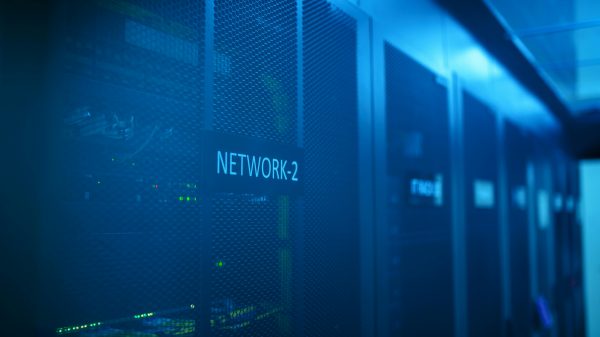In an era where cyber threats are an ever-present danger, cybersecurity compliance has become a critical issue for businesses operating in the USA. Organizations that effectively implement compliance measures can demonstrate their commitment to security and build trust with customers, partners, and investors. For many companies, partnering with a NIST Compliance Consultant can streamline this process, ensuring adherence to regulations while enhancing their overall cybersecurity posture.
The complex landscape of compliance frameworks in the United States, from the General Data Protection Regulation (GDPR) for businesses handling EU data to the California Consumer Privacy Act (CCPA) and industry-specific standards such as HIPAA, poses challenges. However, businesses that navigate these requirements strategically can turn compliance into a valuable asset that sets them apart in competitive markets.
Understanding Cybersecurity Compliance Requirements in the USA
The United States lacks a unified federal cybersecurity regulation, leaving businesses to navigate a web of state, federal, and industry-specific laws. For instance, the Health Insurance Portability and Accountability Act (HIPAA) mandates stringent protections for healthcare data, while the Payment Card Industry Data Security Standard (PCI DSS) applies to companies handling credit card transactions. State laws, such as the California Consumer Privacy Act (CCPA), add another layer of complexity, requiring businesses to protect consumer privacy and disclose data practices.
Beyond these specific regulations, businesses working with federal agencies must adhere to the Federal Information Security Management Act (FISMA) and align with the National Institute of Standards and Technology (NIST) Cybersecurity Framework. The NIST framework, widely regarded as a gold standard, provides a flexible approach for identifying, protecting, detecting, responding to, and recovering from cybersecurity threats.
A NIST Compliance Consultant can help businesses navigate these regulations by tailoring the framework to their unique needs. Compliance isn’t just about legal obligations—it’s a chance to build a secure, resilient infrastructure that protects sensitive data while fostering customer confidence.
The Cost of Non-Compliance: Risks and Repercussions
Non-compliance with cybersecurity regulations can result in severe financial and reputational consequences. In 2022, the Federal Trade Commission (FTC) levied fines exceeding $3 billion for privacy violations and data breaches. Beyond monetary penalties, businesses face potential lawsuits, loss of customer trust, and long-term damage to their brand reputation.
The financial impact of a data breach is staggering. According to IBM’s 2023 Cost of a Data Breach report, the average cost of a breach in the U.S. reached $9.44 million, the highest globally. These costs include fines, legal fees, lost revenue, and expenses related to incident response and recovery.
Non-compliance also jeopardizes relationships with business partners and stakeholders. Many organizations now require their vendors and suppliers to meet specific cybersecurity standards. By proactively addressing compliance, businesses can mitigate these risks and position themselves as reliable partners in their respective industries.
Turning Compliance into a Strategic Advantage
While meeting cybersecurity requirements is essential for legal and operational reasons, it can also serve as a powerful differentiator in competitive markets. Customers, investors, and partners are increasingly prioritizing security and data protection when choosing whom to do business with. Demonstrating a strong commitment to compliance can build trust and loyalty, setting businesses apart from less-prepared competitors.
For instance, implementing the NIST Cybersecurity Framework not only ensures compliance but also showcases a company’s dedication to best practices in cybersecurity. A 2023 Deloitte survey found that 67% of consumers are more likely to do business with companies that take visible steps to protect their data.
Moreover, compliance fosters operational efficiency. The process of aligning with regulatory standards often reveals vulnerabilities and inefficiencies within an organization’s systems. Addressing these issues can streamline operations, improve risk management, and enhance overall productivity, creating long-term value beyond compliance.
Leveraging Technology for Seamless Compliance
Technology plays a vital role in simplifying the compliance process and strengthening cybersecurity defenses. Advanced tools can automate key compliance tasks, such as monitoring, reporting, and incident response, reducing the burden on internal teams. For example, Security Information and Event Management (SIEM) systems collect and analyze security data in real time, enabling businesses to detect and mitigate threats swiftly.
Encryption technologies are another critical component of compliance, ensuring that sensitive data remains secure even if intercepted. Many regulations, including HIPAA and GDPR, mandate encryption for specific types of data. Additionally, endpoint detection and response (EDR) tools protect devices against malware and unauthorized access, addressing key compliance requirements.
Cloud solutions have also emerged as a valuable resource for compliance. Many cloud service providers offer built-in security features that align with industry standards, making it easier for businesses to meet regulatory demands. However, organizations must ensure they select providers capable of meeting their specific compliance needs. A NIST Compliance Consultant can help evaluate and integrate these technologies to create a robust compliance strategy.
Building a Compliance-First Culture
Compliance is not just a checklist for IT departments—it’s a company-wide responsibility. Building a compliance-first culture starts with leadership, as executives set the tone and allocate resources to achieve cybersecurity goals. Clear communication about the importance of compliance helps foster buy-in from employees at all levels.
Employee training is a cornerstone of this cultural shift. A 2022 Verizon Data Breach Investigations Report revealed that 82% of breaches involved human error, such as falling for phishing scams or using weak passwords. Regular training programs equip employees with the knowledge and skills to recognize and prevent threats, reducing the likelihood of compliance violations.
Establishing clear policies and procedures also reinforces a compliance-first mindset. These guidelines should address data handling, access control, incident reporting, and other key aspects of cybersecurity. Regular audits and updates ensure that these policies remain relevant as regulations and threats evolve. By embedding compliance into daily operations, businesses can create a proactive approach to security rather than reacting to incidents after they occur.
Partnering with Compliance Experts for Long-Term Success
Navigating the complexities of cybersecurity compliance requires specialized expertise. For many businesses, partnering with a NIST Compliance Consultant is a strategic decision that ensures long-term success. These experts provide tailored guidance on implementing frameworks such as the NIST Cybersecurity Framework, conducting risk assessments, and aligning with industry-specific standards.
Compliance consultants also help businesses stay ahead of regulatory changes. The cybersecurity landscape is constantly evolving, with new threats and laws emerging regularly. By working with experts, businesses can adapt to these changes without disrupting their operations.
Additionally, compliance consultants bring valuable insights from working with diverse industries, enabling them to recommend best practices and innovative solutions. This external perspective helps businesses identify blind spots and improve their cybersecurity posture. With the support of compliance experts, organizations can turn regulatory requirements into opportunities for growth and competitive advantage.
Conclusion
Cybersecurity compliance in the USA is no longer just a legal obligation—it’s a strategic opportunity for businesses to differentiate themselves in a crowded market. By meeting regulatory requirements, organizations can protect sensitive data, build trust with stakeholders, and gain a competitive edge. Leveraging the expertise of a NIST Compliance Consultant, companies can navigate the complexities of compliance with confidence, ensuring their security measures align with industry best practices.
From understanding the regulatory landscape to adopting advanced technologies and fostering a compliance-first culture, businesses have numerous tools at their disposal to turn compliance into strength. In a world where security is paramount, mastering cybersecurity compliance is a powerful way to secure long-term success and build a reputation as a trusted industry leader.















